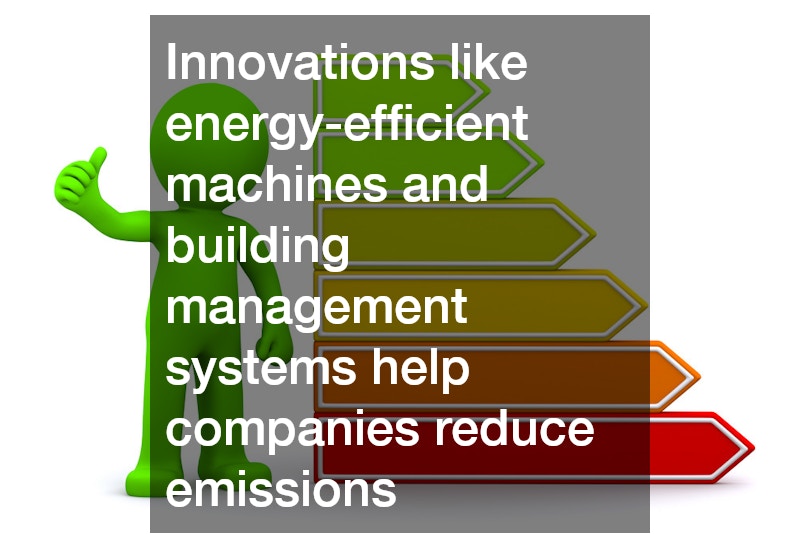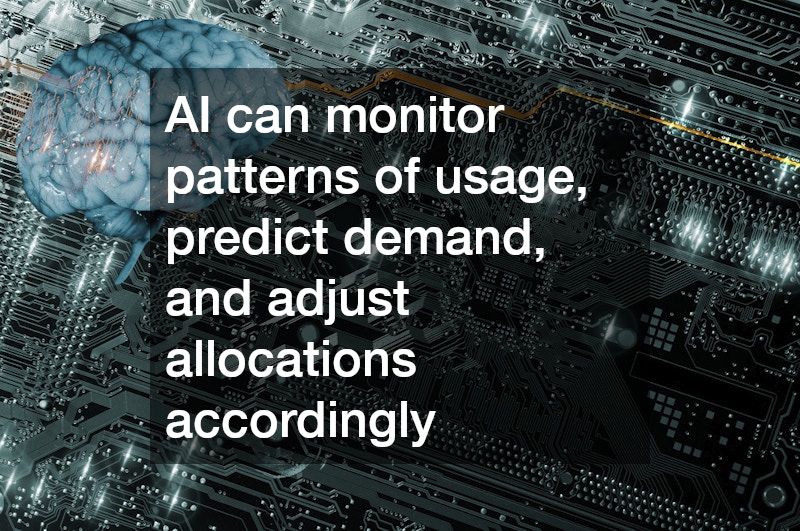
How Modern Businesses are Harnessing Technology for a Greener Future
Technology is a key factor in business today, especially in pursuit of sustainability. Companies are adopting new technologies to reduce their environmental footprint and maximize efficiency as they become more concerned about climate change. These technological advancements help companies reduce their environmental impact, but they also pave the way for new sustainable practices that are in line with consumer demand and regulatory requirements. Technology is at the core of sustainable business strategies. Whether it be automation, data analysis, or AI-driven systems, this technology allows companies to better manage resources, reduce emissions, and increase transparency.
The Transformative Impact of Technology on Sustainable Business Practices
The role of technology in the development of sustainable business practices is crucial, especially in industries with a high environmental impact. Businesses can reduce waste, save energy, and minimize carbon footprints by integrating eco-friendly technology. Businesses can implement technology solutions that track energy and emissions. Technology’s role in sustainability extends beyond environmental benefits. It also improves operational efficiency, increases stakeholder trust, and aligns businesses with regulatory standards that aim to reduce ecological harm.
Technology can reduce the environmental risk of a cesspool-pumping business. Modern pumping and filtering systems ensure that waste is processed efficiently and prevent contamination of water sources and ecosystems. These technologies improve service quality and enhance sustainability by reducing downtime, minimizing energy consumption, and reducing the need for expensive equipment.
Advancing Energy Efficiency Through Innovative Technologies

Energy efficiency is at the forefront of many businesses’ quests for sustainability. Innovative technologies have made great strides in this field. In the development of energy-efficient technologies, such as smart systems, data-driven tools for energy management, and renewable energy solutions, technology plays a major role in improving efficiency. These technologies enable businesses to monitor energy consumption in real time, make the necessary adjustments, and reduce their costs and environmental impact. Innovations like energy-efficient machines and building management systems help companies reduce emissions while aligning with sustainability initiatives.
Integrating energy-efficient technology into the daily operations of business coaches can have a significant impact. Business coaches can help organizations adopt digital platforms and tools to streamline operations and minimize energy consumption. Virtual coaching sessions, for example, eliminate the need to travel and reduce emissions and energy consumption. Business coaches who emphasize the importance of energy efficiency can help companies improve their bottom lines and contribute to a sustainable future.
Digital Solutions: Supporting Sustainable Supply Chains
Digital solutions transform supply chains to make them more sustainable and efficient. In supply chain management, technology is used to improve transparency, reduce wastage, and optimize resource usage. These tools allow businesses to track the entire supply chain from raw materials through delivery and ensure that sustainable practices are used throughout. Automation and real-time analytics allow businesses to react quickly to disruptions in the supply chain, reducing delays, and minimising environmental impact. Technology plays a crucial role in creating sustainable supply chains by streamlining operations and reducing inefficiencies.
These digital solutions for commercial concrete businesses are essential in creating an environmentally responsible supply chain. Businesses can use tools such as digital inventory tracking systems and automated order systems to reduce waste and overproduction. They can also prioritize sustainable sourcing. IoT devices that monitor concrete curing can also reduce energy consumption and emissions.
Automation’s Role in Reducing Environmental Footprints
Automation is a key factor in reducing environmental footprints for various industries. Automation of business processes through technology has resulted in significant reductions in resource consumption, energy consumption, and waste production. Automated systems automate tasks that require more energy and time, which allows businesses to operate with greater efficiency and less impact on the environment. Automation also improves resource management accuracy, which reduces the risk of waste or overuse. Businesses are able to reduce their carbon footprint as they adopt more automated technologies. This helps them achieve their sustainability goals.
Automation can have a revolutionary impact on the environmental impact and efficiency of operations in a stucco remediation business. Automation, such as automated mixing systems, can ensure materials are used accurately, minimizing waste. Automated scheduling and project management software reduce travel and site visits. This helps to lower transportation emissions. Automating their processes allows a stucco restoration company to not only reduce costs but also its carbon footprint. This shows the importance of technology for promoting sustainability in the construction and building repairs industry.
Driving Sustainable Growth with Data Analytics
Data analytics can be a powerful tool for driving sustainable growth in business. Data analytics is a technology that allows businesses to collect, interpret and act on data in real time to support sustainability goals. Businesses can improve efficiency by analyzing data about energy consumption, resource consumption and waste management. Predictive analytics can also help businesses predict demand. This allows them to adjust their production and reduce the overuse of resources. Data analysis and data exploitation are crucial to making businesses more resource-efficient and environmentally friendly.
Data analytics can be a valuable tool for sandblasting businesses to gain insights into their operational efficiency and impact on the environment. Businesses can reduce waste by monitoring energy consumption and material consumption during sandblasting. Data analytics can also be used to track the performance of equipment, making sure that it is working at its optimal level in order to reduce energy consumption and emissions. Data analytics can help a sandblasting company make better decisions to support sustainable growth. This will reduce its environmental footprint while improving profitability and service quality.
Cloud Computing’s Contributions to Sustainability
Cloud computing is a major player in improving sustainability across a wide range of industries. Cloud computing’s role in reducing physical infrastructure requirements, lowering energy consumption, and streamlining operations is a great way for businesses to benefit from technology. Businesses can reduce their carbon footprint by storing data on the cloud. This will allow them to minimize the energy-intensive servers that are needed at the site. Cloud-based collaboration software allows for remote working, which reduces the need to commute and travel. This further contributes towards sustainability. Cloud computing improves resource management and scalability, which allows businesses to adapt their IT requirements dynamically.
Cloud computing can help outdoor kitchen companies streamline their project management, client interaction, and business practices. The company can save energy and material by using cloud-based design software. Cloud storage allows all project information to be accessed in real time, improving communication and reducing delays. Outdoor kitchen companies that put technology in the forefront can work more efficiently, reduce environmental impact and promote a business model aligned with modern environmental standards.
AI-Powered Resource Management for a Greener Tomorrow

Artificial intelligence (AI), which is a form of artificial intelligence, plays a key role in enabling resource management to be more sustainable. AI’s capability to analyze data in real time, predict future trends, and make real-time decision helps businesses maximize their resource usage and minimize waste. AI-driven technology is especially useful in industries that heavily rely on resource management. AI can monitor patterns of usage, predict demand, and adjust allocations accordingly. It reduces wasteful consumption and improves operational efficiency. Businesses can contribute to sustainability by implementing AI-based solutions.
AI has the potential to revolutionize water resource management for plumbing contractors. AI systems are able to detect leaks, monitor the flow of water, and predict maintenance requirements, preventing wasteful water use and reducing energy usage associated with pumping or heating water. Plumbing contractors can offer clients more sustainable services by using AI-driven solutions. Water conservation has become a top priority. AI plays a crucial role in resource management. Plumbing contractors can adopt more eco-friendly methods, reducing their carbon footprint and improving client satisfaction. This shows the importance of technology in driving sustainability in the plumbing industry.
Sustainable Product Development: Innovation at the Core
Technology innovation is the key to sustainable product development. It allows businesses to develop eco-friendly products that have a reduced impact on the environment. In this field, technology is used to create eco-friendly products with reduced environmental impact. Sustainable product development does not just mean creating greener products but also minimizing environmental damage throughout the entire lifecycle of a product – from production to disposal. Businesses that invest heavily in technology are better able to meet the growing demand from consumers for sustainable products while still maintaining profitability.
Sustainable product development for roofing contractors is essential to reduce the environmental impact of roof materials. Innovative technologies such as solar-integrated roofing shingles, recyclable roof materials, and energy-efficient insulation are examples of eco-friendly roofing solutions. Roofing contractors can provide environmentally friendly options to their clients by adopting sustainable products. These products reduce energy consumption and improve the sustainability of buildings. Technology plays a key role in the development of roofing products, allowing contractors to meet both their clients’ practical and environmental requirements. This contributes to a more sustainable industry.
Enhancing Corporate Sustainability with IoT Technologies
Internet of Things is rapidly becoming an important component of corporate sustainability. IoT technology allows businesses to connect machines, devices and systems in order to collect and analyze data in real time, which leads to better resource management. IoT can be used to monitor energy consumption, detect inefficiencies and automate maintenance, which reduces both unnecessary energy consumption and downtime. IoT enables businesses to make smarter decisions based on data, reducing costs and carbon footprints. This helps them achieve their sustainability goals.
IoT can revolutionize the way equipment is monitored and serviced by a forklift company. Sensors on forklifts track performance, energy consumption, and maintenance requirements, allowing repair work to be done before expensive breakdowns. This proactive approach extends the lifespan of forklifts and reduces energy consumption associated with inefficient machines. Forklift repair businesses can provide more sustainable services by using technology and IoT to optimize their operations for cost savings and environmental responsibility.
Shaping the Future of Sustainable Business with Technology
Technology will continue to play a role in shaping the future of business, especially for industries that are known for their environmental impact. Technological advancements in resource management, automation, and sustainable product design are helping businesses to reduce their environmental footprints while maintaining operational efficiency. The integration of new technologies is not only a way to support current sustainability initiatives but also helps businesses prepare for future regulations and challenges regarding environmental responsibility. Businesses that adopt sustainable technologies as innovation advances will be the ones to lead in promoting an environmentally conscious global economy.
The adoption of technology in the demolition industry is essential to minimizing environmental damage. Modern machinery, such as precision-controlled equipment for demolition, can reduce waste and improve the efficiency of recycling and reuse. Digital tools also allow demolition companies to plan more efficiently and ensure that environmental impacts are minimized through waste management. Demolition companies can achieve sustainability goals by embracing technology while maintaining efficiency and effectiveness in their operations. This will ensure a greener industry.
Final Thoughts
It is hard to deny the role that technology plays in encouraging sustainable business practices. Technology is transforming businesses across industries. From manufacturing to service-based companies, it allows them to be more efficient, reduce waste, and minimize environmental impact. Technology, whether it’s automation, AI, or data analytics, is giving businesses the tools they need to adopt sustainable business practices that are good for the environment as well as their bottom line. Businesses that adopt these technologies are better positioned to meet consumer and regulatory expectations as sustainability becomes a more important factor.
Leave a Reply